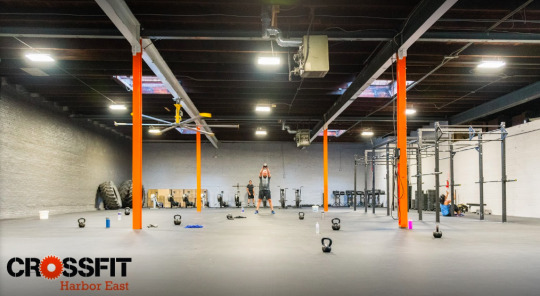Performance Mindset

I have always been an active person. I grew up playing team sports both organized in public gyms and impromptu scrimmages in neighborhood yards. I ran cross country in high school and eventually retired from sport when I went to college. While studying to be a grown up, I came out of retirement when I was wooed into mountain biking. After a baptism at my first stream crossing, Saturday bike rides in the woods and on the roads became ritual. For 15 years my fitness had been maintained exclusively outside.
Stepping back into a gym changed my body but also enhanced perspective on success beyond the facilities doors.
In 2015, I entered a gym for my first indoor workout since freshman year of college. I bought a Groupon for Yoga. My friend Brandon, requested my support for his effort to get chest-baring-ready for a professional dance performance. Yoga captured my being. I enjoyed the physicality of the sessions, and found enlightenment in the practice. I dreamed about my mat and watched my body change. It was going great until our sessions were up.
Brandon still had 3 months to curtain and wanted to continue the path to professional form. He suggested we buy another Groupon, this time for Crossfit. Yoga had been great, so why not?
I entered my first crossfit gym for a 6:30 PM work out of the day (wod) on a cold February night. Intimidating is an understatement. The space was sparse with tortuous looking apparaty around the walls. The previous class was wrapping up and their strained looks showed desperation for seconds to pass and more than hinted at what was to come for me. The specimens of humanity present in the gym were lessons in platonic human-body form. I am not fat, but I certainly did not have ripples in those places. Music was blaring to pump up the athletes and likely to drown out the grunts of agony. The gym owns the title of “box” as inevitably a box is the only place you could imagine physical duress to take place.
Inside this box, there is much to learn from a mindset of daily performance.
The typical session for crossfit starts with a coach describing the routine you will endure during the next hour. The coach walks you through the technique and the strategy you will need for the performance. A coach shows the most appropriate positioning for a movement and suggests the most efficient tactic for completing the task at hand. Too much reliance on oneself in crossfit might lead to injury and likely will elongate the agony you must endure to finish.
During the chalkboard dialog, and in the midst of warming up the body and mind, the coach will note who is in attendance. It is important to document when we have done work and what we have done. In some crossfit gyms it is merely a name on the board, but technology is also used to preserve the information for greater analysis. Without documentaiton, the we cheat ourselves of both knowing our victories and understanding our weaknesses.
Once attendance has been taken, the plan has been made for the work out, and the technique tweaked through several rounds of building the motion or the volume of weight… the performance begins. The surroundings fade. There is little energy given to the cognitive efforts beyond the physical task at hand. It is hard to discern even what the blaring music is in the background, let alone what my colleague five feet away from me is doing. Is she ahead of me? And is that guy really doing more weight than I am? Those questions are not able to cross your mind. The challenge of the work, and the desire to excel at it, requires utmost focus on what matters, finishing. To complete the task you must do every rep yet only be thinking about the next movement required to conquer the beastly workout.
When the clock stops or the last round is retired, there is a chorus of euphoria. You hear the music of the room again. Your body is singing to the beat of your racing heart and tingling with the natural high of hard exertion. Your mind is back to a harmonious state thinking about the sense of accomplishment. You are rewarded for stepping up and performing!
The wonder of crossfit is not over when the timer chimes. You still need to report on your work. Either publically or in private, you record your score. The documentation allows for consideration of your position, certainly by you, likely by your coach and if you really want to grow, by your peers. You have a mark to compare either to the past or to the future with yourself, and even with others. You have an opportunity to improve and consider what might lead to different results. Performance is not complete without evaluation.
Crossfit highlights the value of approaching everyday as a performance.
First and foremost, peak performance requires guides. There are people who have gone before you that can provide insight on optimum execution. They can refine your skills and expand your thinking. Their understanding of rudiments of life, business and recreation are what you can build your practice upon to achieve and exceed beyond your goals.
Peak performance requires preparation. The warm up is key to success. Anticipating the feel of an experience and tweeking the small things when the clock is not held against us allows the mind and body to do exactly what it needs to when it matters.
Peak performance requires focus. Circumstances change and are hard to predict, we have to be able to complete the task at hand regardless, and to do so requires that we focus on every step along the way.. We will certainly miss the minor but meaningful shortcuts if our frame of reference is wrong, and we will likely miss the mark if we do not keep it in sight.
Peak performance has destinations that you can celebrate. Smart goals, or knowing the intent of the performance, gives you something to pause and stand in wonder at your abilities. They are natural points for rest, reward and conjuring up the next idea.
Peak performance is achieved through analysis. It is hard to know if you have reached the peak if there is no marker. It is also hard to know where you are at in relation to the destination if there is no accounting. Documenting our work allows for constant reflection which leads to adjustments that lead to meaningful change. Knowing where you are at and asking questions about the position and how you got there, is the means by which we will conquer new territory.
